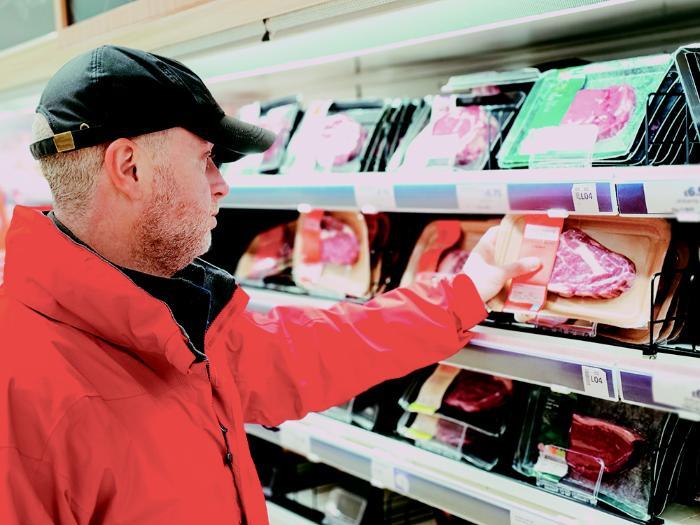15 November 2024
The meat of the matter
Through hosting research centres like Meat Technology Ireland (MTI), Teagasc puts Ireland in a unique position to tackle the increasing challenges facing the meat processing sector, explains Director of MTI, John Colreavy.

Photo credit: coldsnowstorm/istockphoto.com
The challenges facing the meat processing sector are evident as consumers become increasingly informed and concerned about the impacts from livestock production on the environment.
In the space of a lifetime, the world’s population has increased from three billion people to over eight billion. Today, the world faces the dilemma of feeding an ever-expanding global population while the effects of climate change – and the contribution agriculture makes to that change – are front and centre. The forecasts show that consumers will continue to choose beef and lamb as their protein of choice, not simply due to the exceptional nutritional benefits offered but because they enjoy consuming meat.
The future is a world where consumer demand for meat protein is expected to grow as more communities around the globe continue to improve their living standards. However, that world will be characterised by jurisdictions that can demonstrate their sustainability credentials by means of independently validated scientific evidence. Therefore, there is a race to be the meat provider of choice in global markets that can demonstrate the best use of natural resources such as available land, feedstocks and water, while laying out a clear pathway to reducing further environmental impact.
The social dialogue around the pros and cons of livestock product is over-simplified; the solutions required for agriculture to play its own part are varied and complex. Ireland has unique advantages associated with its agricultural systems by virtue of design, driven by a cultural heritage, legacy and commitment to being a food-producing nation.
The foundations needed to be at the head of the animal-protein competition were already being laid a generation ago. This is evidenced by the significant improvements in efficiency in our animal production systems since the 1970s, as well as the transformation of meat processing in the aftermath of BSE – from intervention commodity to market-leading, premium retail and food-service offering.
There is a need to rapidly build the evidence of the true carbon footprint of beef and lamb through the development of large datasets typically characteristic of MTI research. This also needs transparent, science-based rationale around the optimum strategies we should follow to achieve the ambitious reductions needed. In addition to an infrastructure that is the envy of the world – genetics, quality, animal traceability, food safety and animal welfare – the rapidly emerging digital world offers new toolkits to connect, harness and interpret the data from our food systems to drive towards continuous improvement in sustainability.
Given the work underway in MTI, and across Teagasc and other research institutions on the island, we can visualise a world where the methane/carbon footprint is measured, reduced and that reduction validated, enabled by the revolution in digital-processing power and storage. That same digital revolution will dramatically transform the efficiencies of the processing facilities tasked with extracting the maximum value and maximising the valorisation of waste of the precious raw material so carefully nurtured.
Acknowledgements
MTI is funded by Enterprise Ireland under the Technology Centre programme in collaboration with beef processors Ashbourne Meat Processors, Liffey Meats, Dawn Meats, ABP Food Group and Kepak.
Find out more about Meat Technology Ireland
